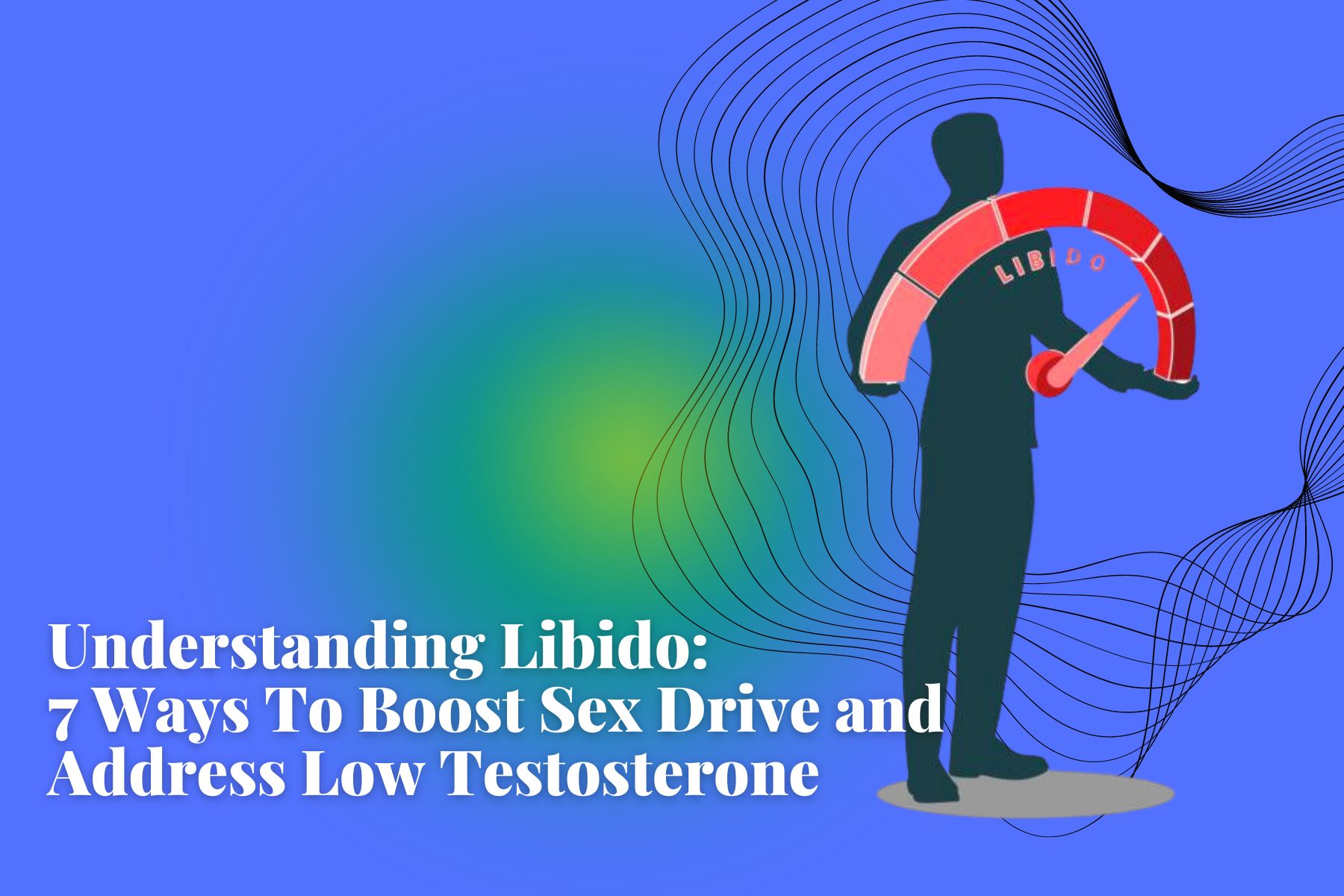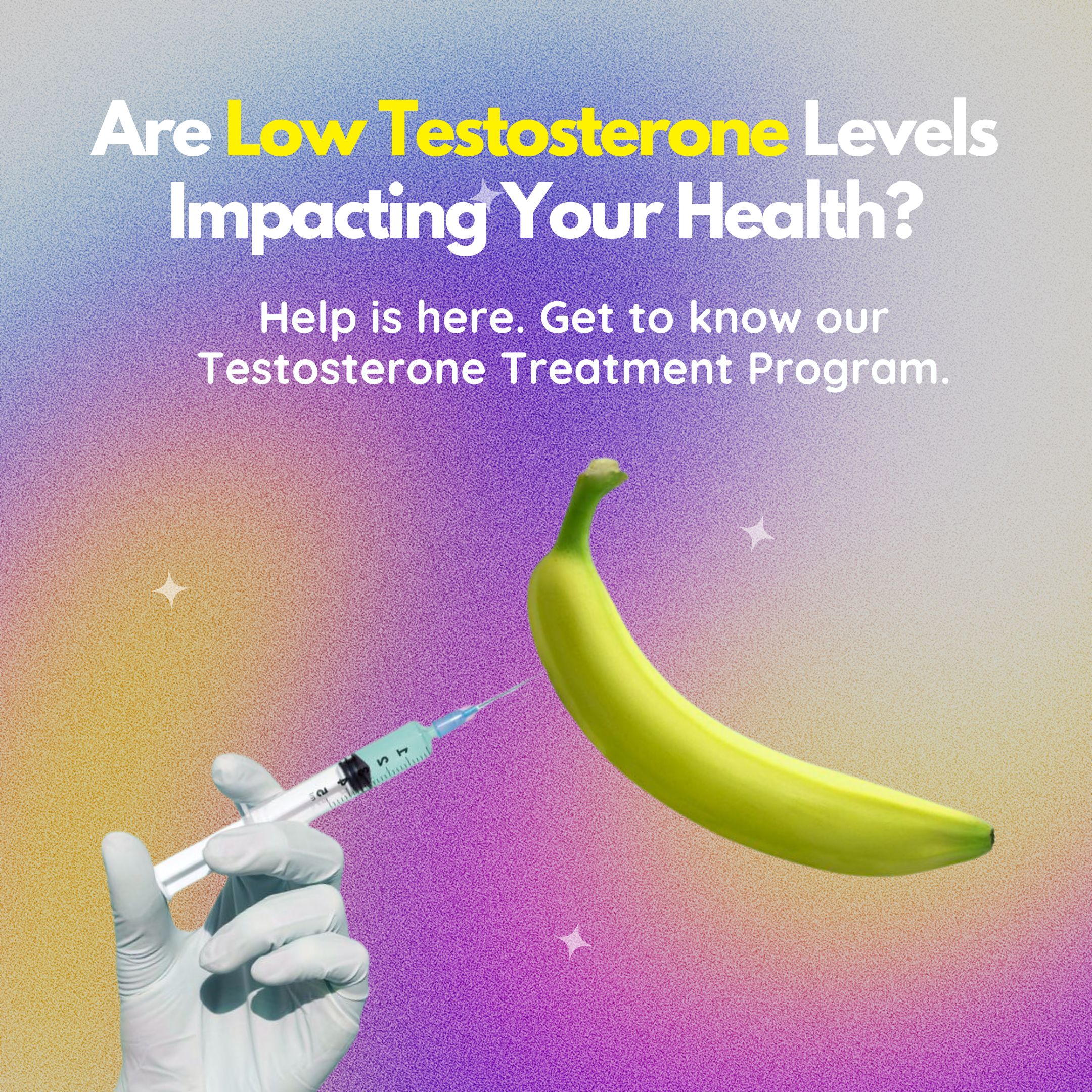CATEGORY: BOOST TESTOSTERONE
Understanding Libido: 7 Ways To Boost Sex Drive and Address Low Testosterone

A healthy sex drive, also known as libido, is a vital aspect of overall well-being, contributing to a satisfying and fulfilling life. Libido encompasses the desire for sexual activity and plays a significant role in intimate relationships. However, various factors, including stress, hormonal imbalances, and lifestyle choices, can affect libido. In particular, low testosterone levels can contribute to a diminished sexual desire. In this article, we will explore what libido is, its significance, and seven effective strategies to increase libido while addressing factors such as low testosterone to reignite the passion in your relationship.
Understanding Libido:
At What Age Do Men's Sex Drive Decline?
Once you hit 30, testosterone levels will begin to fall by about 1% every year, which means – albeit slowly – your libido will start to decline.
Libido refers to an individual's overall sexual desire or drive. It is a complex interplay of physical, emotional, and psychological factors that influence one's interest in sexual activities. While libido varies among individuals, a healthy sex drive is generally considered an essential component of a satisfying and fulfilling life.
In other words, we are motivated to have sex for the rewards it provides, like closeness to a partner and orgasms.
There are two types of desire:
* Spontaneous desire describes a sexual urge arising from a cue, such as seeing a person you are attracted to.
* Responsive desire means wanting to have sex for reasons beyond physical gratification, such as feeling close to your partner.
Causes of Low Libido
It’s important to note that there is no standard definition of low libido or normal desire. For example, it could mean that your desire is lower than your partner’s or that you’re experiencing a level of desire less than what you’ve experienced in the past.
Many factors may cause low or decreased libido, including:
* Aging
* Menopause
* Hormonal issues, including testosterone, estrogen and thyroid problems
* Medical issues such as cardiovascular disease and obesity
* Medications such as SSRI antidepressants, hormonal contraceptives, antipsychotics and blood pressure medications
* Depression, anxiety or chronic stress
* Poor body image
* Lifestyle issues such as poor nutrition, lack of exercise and poor sleep quality
* Relationship problems such as incompatibility and poor communication
* Drug and alcohol misuse
* Sexual issues like painful sex or erectile dysfunction
Strategies to Boost Libido and Address Low Testosterone:
1. Prioritize Stress Management:
- Chronic stress can lead to increased cortisol levels, disrupting hormonal balance, including testosterone production. Stress management techniques such as meditation and yoga can help alleviate stress and support a healthy sex drive.
2. Maintain a Healthy Lifestyle:
- Regular exercise, a balanced diet, and adequate sleep contribute to overall well-being, positively impacting both libido and testosterone levels.
3. Get Quality Sleep:
- Deep sleep is essential for testosterone production. Establishing a consistent sleep routine and creating a comfortable sleep environment support healthy sexual function.
4. Communicate with Your Partner:
- Open communication fosters emotional intimacy, strengthening the bond between partners and positively influencing libido.
5. Explore Sensual Activities:
- Engaging in sensual activities outside of the bedroom enhances emotional connection, contributing to increased libido and a healthier sex life.
6. Consider Natural Supplements:
- Certain supplements, like maca root and ginseng, have been associated with increased testosterone levels and improved libido. However, professional guidance is essential before incorporating any supplements.
7. Seek Professional Guidance:
- If concerns persist, consulting with a healthcare professional can help identify and address hormonal imbalances or underlying health issues affecting libido.
Conclusion:
Understanding libido as a complex interplay of physical, emotional, and psychological factors allows individuals to take a holistic approach to enhance their sex drive. By adopting lifestyle changes and addressing factors such as low testosterone, one can work towards achieving a satisfying and balanced sex life. Individual responses may vary, and seeking professional advice is crucial for a comprehensive approach to sexual well-being.


